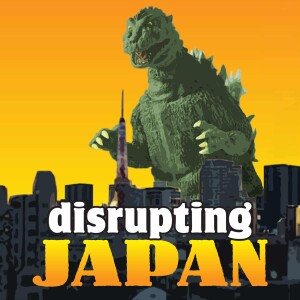
Disrupting Japan: Startups and Venture Capital in Japan
Business:Entrepreneurship

Will Japan’s Manga industry ever really change?
 2022-06-13
2022-06-13
Download
Right click and do "save link as"
Manga is one of Japan's best known exports, but it's surprisingly hard to make money here.
Today we dig into exactly why this is. We sit down with Sho Ishiwatari, founder of Mantra, who explains how is company is trying to expand the global market by streamlining the translation and global marketing processes.
We also talk about why manga is so much harder than books for AI to understand and a few ways Japanese universities are trying to develop and inspire the next generation of Japanese founders.
It's a great conversation, and I think you'll enjoy it.
Show Notes
The surprisingly complex manga translation process
The real problem with fan-translated manga
How to think about getting a 10x( or 100x!) improvement
How the University of Tokyo supports startups and what other schools can learn from them
Why translating manga is so different from translating novels
The downside using contextual hinting wit AI/ML
How to expand the global manga market
What every Japanese university should be doing to encourage startups
Links from the Founder
Everything you ever wanted to know about Mantra
Connect with Sho on LinkedIn
Friend him on Facebook
Follow him on Twitter @mantra_ja (Japanese)
Sho's published academic research on machine translation of manga
Transcript
Welcome to Disrupting Japan, straight talk from Japan’s most successful entrepreneurs.
I’m Tim Romero and thanks for listening.
Manga and Anime have been two of Japan's most visible and influential exports. Japanese manga has earned its own section in US bookstores. And in the movie industry today, many of the world's most successful directors and cinematographers cite Japanese manga and anime artists as some of their biggest inspirations and influences. But surprisingly, despite manga's global popularity and influence, the global market is pretty small. There's not a lot of money in manga. A
And today, we're going to dig into that. We're going to sit down and talk with Sho Ishiwatari, CEO of Mantra. And we're going to find out if a startup can disrupt or even survive in the manga industry. Mantra has created an AI that can translate manga. But, as is the case with so many startup stories, the journey is far more interesting than the destination. You see, before the AI could translate manga, Sho when the team had to teach it to understand manga. Not just read the words but understand the context and the layers of implied meaning.
Sho and I talk about the nature of human understanding, how Japanese universities can better inspire the next generation of startup founders, and AI's role in helping people understand each other. But you know, Sho tells that story much better than I can. So let's get right to the interview.
Interview
Tim: So we're sitting here with Sho Ishiwatari of Mantra, who's bringing Japanese manga to the world. So thanks for sitting down with us, Sho.
Sho: Yeah, thank you for having me, Tim.
Tim: In the introduction, I give a really high-level description of what you guys do. But can you explain what Mantra is?
Sho: Yeah, sure. So what we are doing is to deliver comics, deliver manga, across language barriers. So we are building two products. The first one is a manga translation tool that is based on our machine translation technology. And another product we're making is Langagku, which is a language learning tool based on manga.
Tim: That's two really different lines of business.
Sho: Yeah.
Tim: Let's dive into both separately later on. But the core tool, do you just translate Japanese into English or do you support other languages as well?
Sho: We currently support for language peers, Japanese to English, and English to Japanese, and Japanese to Chinese, and Chinese to Japanese.
Tim: Well, that's interesting. So far, most of your business has been Japanese to other languages. But do you also have companies bringing in English or Chinese language manga to Japan?
view more
More Episodes
The Future of Disrupting Japan
 2021-08-30
2021-08-30
 2021-08-30
2021-08-30
One way that AI is transforming family farms
 2021-05-31
2021-05-31
 2021-05-31
2021-05-31
Your Japanese textbooks are lying to you
 2020-07-06
2020-07-06
 2020-07-06
2020-07-06
012345678910111213141516171819
Create your
podcast in
minutes
- Full-featured podcast site
- Unlimited storage and bandwidth
- Comprehensive podcast stats
- Distribute to Apple Podcasts, Spotify, and more
- Make money with your podcast
It is Free
- Privacy Policy
- Cookie Policy
- Terms of Use
- Consent Preferences
- Copyright © 2015-2024 Podbean.com




